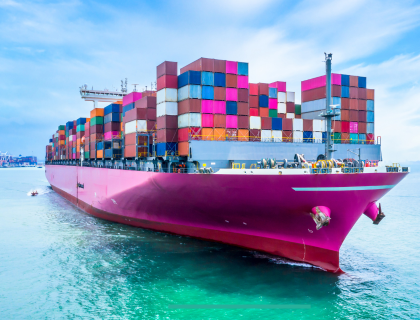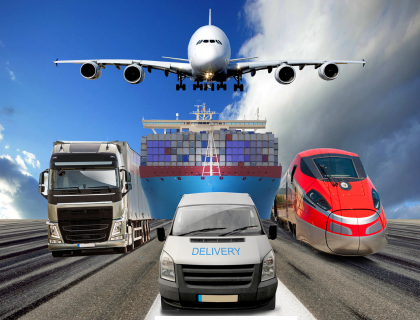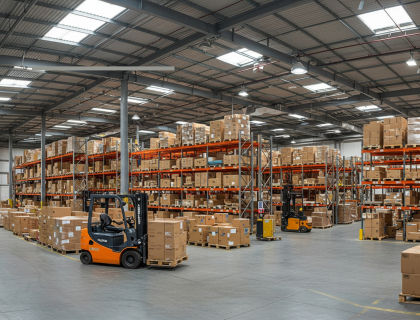Global logistics has always been a sector driven by change, but in 2025 the pace of transformation has reached an unprecedented speed. The combination of technological progress, geopolitical shifts, growing eCommerce demand, and pressure for more sustainable practices has forced logistics companies worldwide to rethink their strategies. For businesses engaged in international trade, understanding these trends is no longer optional – it is the foundation for survival and growth.
One of the most visible shifts is the rapid digitalization of supply chains. In the past, logistics was often associated with paperwork, long delays, and fragmented communication. Today, companies are investing heavily in digital platforms that integrate every stage of transportation: from supplier selection to customs clearance and last-mile delivery. Cloud-based systems now allow real-time tracking of shipments, predictive analytics can anticipate delays, and AI-powered dashboards provide decision-makers with a level of transparency that was unimaginable just a decade ago. Digitalization is not only about convenience – it directly translates into reduced costs, fewer human errors, and stronger customer trust.
Automation is another critical driver of change. Warehouses in 2025 are no longer the manual facilities they once were. Automated guided vehicles (AGVs), robotic arms, and AI-based sorting systems are handling tasks that were previously labour-intensive. Drones are being tested for last-mile deliveries in urban environments, and autonomous trucks are starting to reshape long-distance transportation routes. While full-scale driverless freight transport is still years away from mass adoption, the progress made in pilot projects highlights a future where efficiency and safety will significantly improve. The shift towards automation is not without challenges – the need for skilled technicians, cybersecurity risks, and regulatory frameworks remain issues to be solved – but the long-term impact is clear: logistics is becoming smarter, faster, and more reliable.
Sustainability has evolved from a buzzword to a necessity. International trade and logistics are responsible for a significant share of global carbon emissions, and governments, customers, and partners are pushing for change. In 2025, companies are adopting greener practices not just to comply with regulations but also to enhance their competitiveness. Electric trucks, LNG-powered ships, and investment in renewable energy for warehouses are becoming common. More businesses are turning to carbon-offset programs, circular packaging solutions, and eco-friendly materials to meet consumer expectations. Sustainability in logistics is also tied to cost optimization: reducing fuel consumption, optimizing routes with AI, and minimizing empty runs not only lower emissions but also improve profitability.
The growing importance of resilience is another defining characteristic of the logistics sector in 2025. The lessons learned from the COVID-19 pandemic, the war in Ukraine, and disruptions in the Red Sea have reshaped how companies approach risk management. Diversifying suppliers, investing in regional warehouses, and building flexible multimodal transport strategies are now standard practices. Businesses understand that relying on a single country or port can create vulnerabilities, and therefore, they prioritize agility. Advanced simulation tools and digital twins are being used to predict disruptions and create backup plans in real time.
At the same time, customer expectations are evolving. The global eCommerce boom continues to accelerate demand for faster, more reliable, and more transparent deliveries. Consumers expect to know where their package is at every moment, and delays are less tolerated than ever before. This has forced logistics companies to invest in technology that ensures constant communication, smart notifications, and flexible delivery options. B2B clients also expect end-to-end solutions that cover procurement, storage, customs, and delivery, effectively transforming logistics companies into strategic partners rather than just service providers.
The geopolitical environment of 2025 adds another layer of complexity. Trade wars, sanctions, regional conflicts, and shifting alliances require businesses to navigate regulatory uncertainty. For example, companies working between China, the US, and the European Union face stricter compliance requirements, while emerging markets in Africa, Latin America, and Southeast Asia are becoming increasingly attractive alternatives. Logistics strategies now incorporate political risk analysis, ensuring that sudden tariffs or restrictions do not paralyze entire supply chains.
Looking forward, the integration of cutting-edge technologies will continue to accelerate. Blockchain is gaining traction as a secure method for validating documents and contracts, reducing fraud, and streamlining cross-border payments. The Internet of Things (IoT) is enhancing the visibility of shipments by providing real-time data on temperature, humidity, and location – especially critical for pharmaceuticals and perishable goods. Artificial intelligence is moving beyond predictive analytics towards prescriptive recommendations, allowing logistics managers to not only foresee problems but also act on suggested solutions.
For companies engaged in international trade, these trends mean both opportunities and challenges. On one hand, digitalization and automation lower costs, reduce inefficiencies, and make logistics more competitive than ever. On the other hand, sustainability demands and regulatory complexity increase the need for investments and expertise. Companies that adapt quickly will gain a strong competitive advantage, while those that resist change risk being left behind.
In conclusion, the logistics industry of 2025 is defined by transformation. Digitalization is eliminating inefficiencies, automation is reshaping operations, sustainability is driving innovation, and resilience is becoming a strategic priority. Businesses that embrace these changes are positioning themselves not only to survive but to thrive in a global marketplace that is more interconnected – and more unpredictable – than ever before. Logistics is no longer simply about moving goods from one point to another; it is about creating intelligent, sustainable, and adaptive systems that support the future of global trade.




